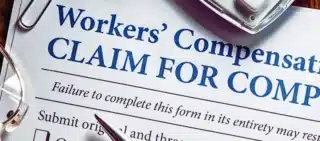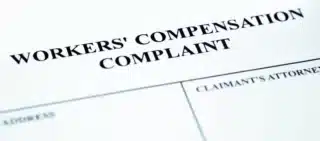
At Strong Law Offices, we have a team of workers' compensation lawyers who understand the financial setbacks and physical limitations...


In November of 2011, the Appellate Court of Illinois, Workers’ Compensation Commission Division, issued an important ruling regarding when injured workers should receive payment for their workers’ compensation claims.
The Court ruled that any undisputed portion of a claimant’s benefits requires prompt payment. Employers who neglect to promptly pay claimants the Illinois workers’ compensation benefits they are entitled to may face additional penalties and fees. Jacobo v. Illinois Workers’ Compensation Commission.

The case began when the claimant, Melinda Jacobo, suffered a back injury at work in 1998 as the result of a forklift backing into her. An arbitrator determined the back injury was caused by a work accident and resulted in Jacobo having a permanent and total disability. She was awarded both temporary total disability (TTD) benefits and permanent total disability (PTD) benefits along with medical expenses. Additionally, the arbitrator granted Jacobo's petition for penalties, finding that her employer unreasonably delayed payment.
The employer then appealed the ruling to the Workers' Compensation Commission which, in April of 2007, affirmed the awards of TTD, PTD, and medical expenses, but reversed the penalties award. Jacobo then appealed, raising only the penalties issue. Jacobo's representatives repeatedly requested payment for the undisputed TTD, PTD, and medical expenses.
In June of 2008, the circuit court reversed the Commission and reinstated the award of penalties. Jacobo still had not received any funds for the undisputed TTD, PTD, and medical expenses. Jacobo then filed a second petition for penalties for nonpaymentarguing her employer "unreasonably and vexatiously refused to pay the undisputed portion of the Commission's awards."
The employer then appealed the judgment of the circuit court, raising only the issue of penalties (based on the first penalty petition). In April of 2009, the appellate court reversed the lower court's decision and denied the award of penalties based on the first petition. Finally, in June of 2009, the employer paid Jacobo the undisputed portion of her benefits for TTD, PTD, and medical expenses. During this time, Jacobo's second penalty petition was still pending.
In September of 2009, the Commission denied Jacobo's second petition for penalties. Jacobo appealed, and the circuit court affirmed the denial.
The Appellate Court highlighted the fact that all proceedings of the case after April of 2007 only concerned the issue of penalties, and that the number of benefits Jacobo was entitled to receive was no longer in question.
Jacobo's employer argued that her petition for penalties constituted "a second bite at the apple," and after the court decided upon the issue of penalties, Jacobo received payment in a timely fashion. The employer further argued that the benefits award was not a final judgment until the issue of penalties on appeal was decided, and the employer was therefore not required to make any payments until that time.
The Appellate Court found, however, that the penalty petition involved a separate issue involving different facts and circumstances. Additionally, the court noted that Jacobo would be barred from contesting any issues other than the penalties because she had failed to raise those issues before the Commission.
The court found the employer's withholding of the undisputed benefits awarded by the arbitrator was improper and without any reasonable justification, stating, "The employer's feigned ignorance of what issues were contested in the claimant's appeal is not a reasonable justification to delay the payment of the uncontested portion of the award."
Based on the record, the court determined Jacobo's representatives requested payment of her benefits in April 2008 at the latest. It wasn't until over a year later her employer finally paid the undisputed portions of the award.
In finding Jacobo was also entitled to penalties, the court strongly explained the basis for the decision:
"The employer's delay in paying the uncontested award in the present case served no purpose except to delay compensation to an injured worker, a result that the penalties are designed to prevent. We want to be clear on this point. Any portion of a claimant's benefits which are undisputed must be promptly paid or the employer will be subject to penalties and attorney fees under the Act."
The court also explained that injured workers in Illinois should not be forced to choose between pursuing an appeal and receiving the immediate income stream they may need and are entitled to receive.
Although the Jacobo case may present a confusing set of circumstances, the decision of the court in the case was clear: Injured employees are entitled to the timely payment of their benefits, and employers who wrongly delay benefit payments will face stiff penalties.
If you have been awarded benefits after a workplace injury, and your employer or insurance company has failed to pay you, contact an experienced workers' compensation attorney. In addition to your workers' compensation benefits, you may be able to seek penalties for delay of payment. A lawyer can advocate on your behalf to help ensure you receive all the compensation you deserve.

At Strong Law Offices, we have a team of workers' compensation lawyers who understand the financial setbacks and physical limitations...

Common Equipment Involved in Run-Over Accidents Illinois job sites, from construction zones to industrial plants, depend on machinery to stay...

Why Do Employers Refuse to File Workers' Comp Claims? While most employers understand their legal obligation to report workplace injuries...